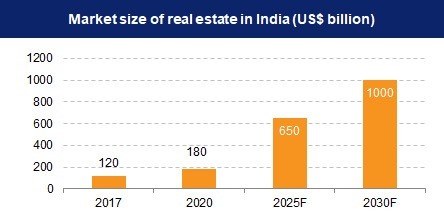What is Infrastructure and Real Estate?
Infrastructure refers to the fundamental physical systems of a nation, including transportation, communication, sewage, water, and electric systems. These elements are crucial for a country’s economic development and quality of life. On the other hand, real estate encompasses land and the buildings on it, including residential, commercial, and industrial properties.
Also Read:- What Are The Government Taxes On Property Purchase In Mumbai
Image: Enrich
While infrastructure provides the backbone of a country’s economy and living standards, real estate offers the spaces where activities and lives are anchored. Both sectors are intricately connected, with the quality and extent of infrastructure significantly impacting real estate development and value.
Is Real Estate Part of Infrastructure?
Real estate and infrastructure are closely linked but distinct. Infrastructure refers to the physical and organizational structures needed for the operation of a society, while real estate refers to land and any permanent improvements attached to it. However, real estate can be seen as part of the broader infrastructure landscape because the development and improvement of real estate often require substantial infrastructure support.
How Does Real Estate Affect the Economy?
Image: InvestoXpert
Real estate plays a pivotal role in the economy. It provides the spaces where businesses operate, which in turn generates employment and drives economic activity. Additionally, the construction and sale of real estate contribute to GDP and tax revenues. The real estate market size in India is substantial, contributing significantly to the national economy. As the residential real estate market size in India grows, it fuels demand for various goods and services, further stimulating economic growth.
Also Read:- Join The Mhada E Auction 2024: Sign Up And Apply Online
What Are Infrastructure Impacts?
Infrastructure impacts various aspects of society and the economy. High-quality infrastructure improves connectivity, reduces transportation costs, and enhances productivity. It also attracts businesses and investments, leading to economic development. In the context of real estate, infrastructure projects like highways, bridges, and airports can drastically increase the desirability and value of nearby properties.
Major Infrastructure Projects in India
India has undertaken numerous major infrastructure projects that have far-reaching impacts on the real estate market size in India:
- Golden Quadrilateral: This highway network connects Delhi, Mumbai, Chennai, and Kolkata, facilitating smoother and faster transportation across major cities.
- Delhi-Mumbai Industrial Corridor (DMIC): A mega-infrastructure project aimed at developing new industrial cities and creating employment.
- Mumbai Trans Harbour Link: This sea bridge aims to connect Mumbai with Navi Mumbai, significantly reducing travel time and boosting real estate in Navi Mumbai.
- Chardham Highway Project: Enhances connectivity to the pilgrimage sites in Uttarakhand, promoting tourism and real estate in the region.
- Jewar Airport: Near Delhi, poised to become one of the largest airports in Asia, impacting the real estate market in the surrounding areas.
How Does Infrastructure Development Affect Real Estate?
Infrastructure development can lead to a significant appreciation in real estate values. Improved connectivity through roads, bridges, and airports makes areas more accessible, thereby increasing demand for residential and commercial properties. For instance, the development of the Metro in cities like Delhi and Mumbai has seen substantial growth in property values along the metro lines.
Also Read:- The Rise Of Bangalore Real Estate: What Makes It A Hot Investment Spot?
How Does Urban Infrastructure Affect the Value of Real Estate?
Urban infrastructure, such as public transportation, sewage systems, and green spaces, plays a crucial role in determining real estate values. Properties located in well-developed urban areas with robust infrastructure typically command higher prices. Real estate growth in India in the last 10 years has been driven by improvements in urban infrastructure, making certain locations highly desirable.
What Affects the Real Estate Market in a Location?
Several factors affect the real estate market in a location, including:
- Economic Conditions: Strong economic growth leads to higher demand for real estate.
- Infrastructure Development: Better infrastructure attracts investments and increases property values.
- Government Policies: Policies related to land acquisition, taxation, and housing finance impact the real estate market.
- Demographics: Population growth and urbanization drive demand for housing and commercial spaces.
- Interest Rates: Lower interest rates reduce the cost of borrowing, making real estate investments more attractive.
What is the Difference Between Infrastructure and Real Estate Business?
While infrastructure refers to the essential facilities and systems serving a country or city, the real estate business involves the development, sale, and leasing of properties. Infrastructure projects provide the necessary support for real estate development. For example, constructing a new highway or metro line can open up previously inaccessible areas for real estate development, thus driving real estate growth in India.
What Are the Positive Effects of Infrastructure?
The positive effects of infrastructure on the real estate market and economy include:
- Enhanced Connectivity: Reduces travel time and costs, making areas more accessible and desirable.
- Economic Development: Attracts businesses and investments, creating jobs and boosting local economies.
- Increased Property Values: Well-developed infrastructure can significantly increase property values.
- Improved Quality of Life: Better infrastructure leads to a higher quality of life, attracting residents and businesses.
- Sustainable Growth: Infrastructure supports sustainable urban growth and development.
Also Read:- The Importance Of 7/12 Utara: A Complete Overview For Property Owners
FAQs
1. How Does Infrastructure Development Impact The Real estate Market in India?
- Infrastructure development improves connectivity, accessibility, and the overall attractiveness of an area, leading to increased demand and higher property values.
2. What Are Some Major Infrastructure Projects In India Affecting Real Estate?
- Major projects include the Golden Quadrilateral, Delhi-Mumbai Industrial Corridor, Mumbai Trans Harbour Link, Chardham Highway Project, and Jewar Airport.
3. What Factors Influence The Real Estate Market in India?
- Factors include economic conditions, infrastructure development, government policies, demographics, and interest rates.
4. How Has The Real Estate Market in India Grown In The Last 10 Years?
- The market has seen significant growth due to urbanization, infrastructure improvements, and economic development, leading to increased demand for residential and commercial properties.
5. What Is The Forecast For The Indian Real Estate Market In 2025?
- The market is expected to continue growing, driven by ongoing infrastructure projects, economic development, and increasing urbanization, with a positive outlook for both residential and commercial real estate sectors.
By understanding the intricate relationship between infrastructure and real estate, stakeholders can make informed decisions that leverage infrastructure developments to maximize real estate value and contribute to economic growth. For more information and listings, visit Housiey.







